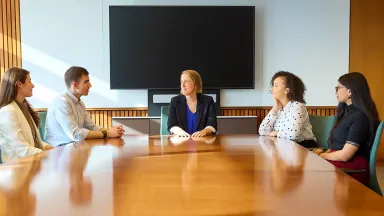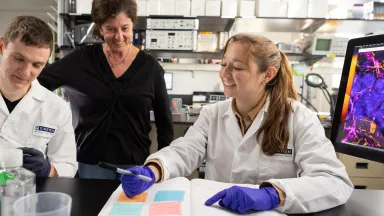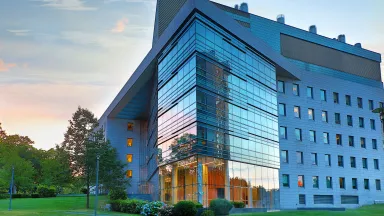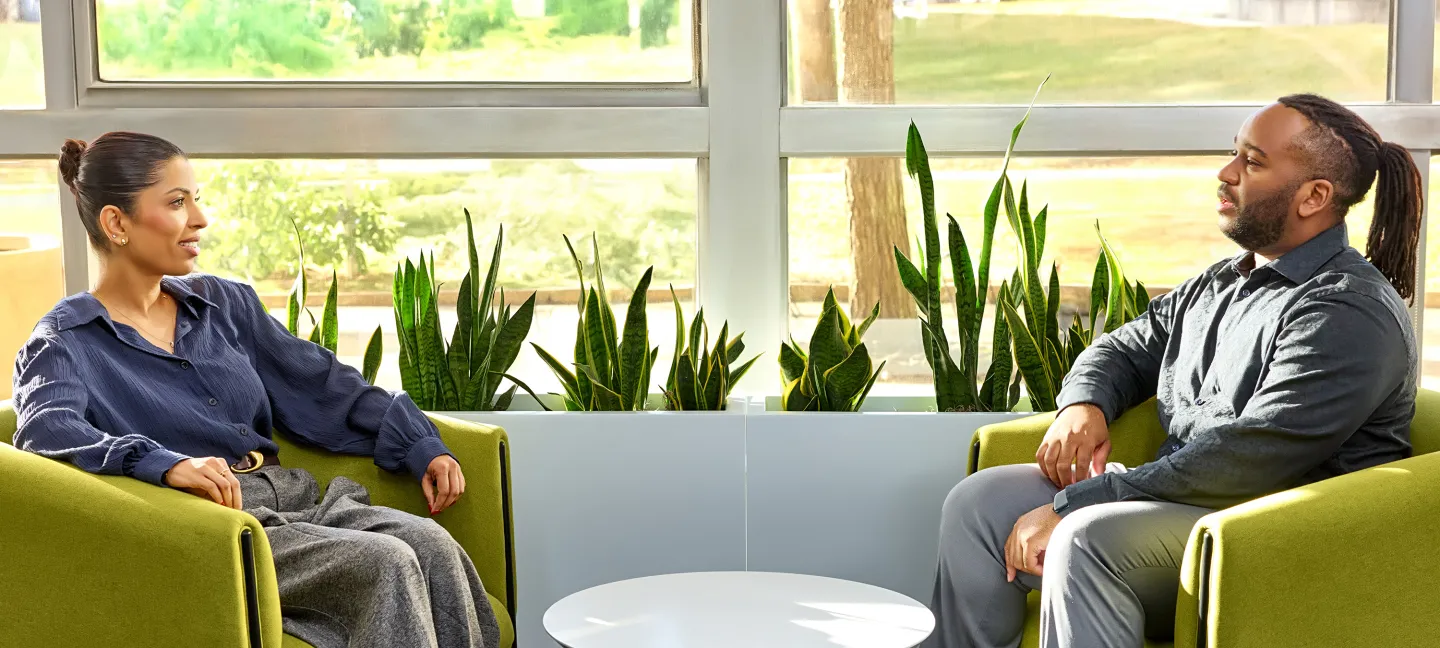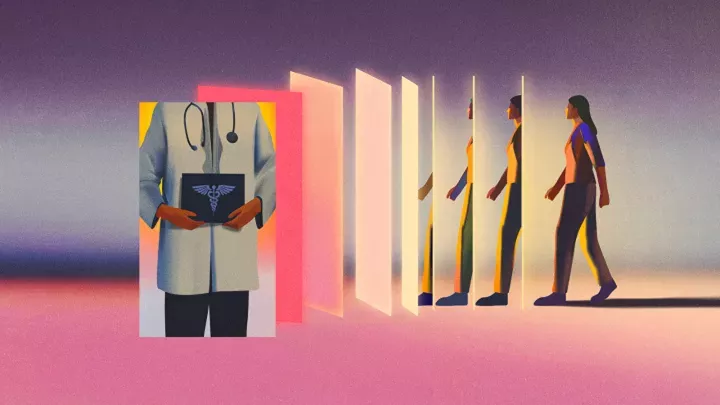About Our Program
The Psychiatry Residency Program at Montefiore Einstein provides residents with outstanding clinical experience, emphasizing psychotherapy, psychopharmacology and research. Focusing on integrated, community-based care exposes residents to the most advanced treatment methods while providing patients with comprehensive, high-quality care. Throughout their training, residents are supported through mentorship, supervision and didactics.
Treatment emphasizes the use of a wide range of psychotherapeutic modalities, including psychodynamic psychotherapy, cognitive behavioral therapy (CBT), family therapy and group therapy, amongst other techniques combined with somatic and psychopharmacologic interventions. Rotations are located in various nearby institutions, including a state hospital, a primary teaching hospital, a municipal hospital and several community-based settings.
Emphasis on Education
Our curriculum is an essential part of our training program, and classes are scheduled to provide a full day free from clinical responsibilities. This is explicitly protected time, during which attendings on each rotation address all clinical needs of the service, allowing residents to thoughtfully and thoroughly focus on their educational experience. In addition to this dedicated didactic time, there is also unit- and hospital-specific instruction that includes, among other things, case conferences, Grand Rounds and special programs with leaders in the field from other prestigious institutions in the New York Metropolitan Area. Participation in scholarly pursuits is voluntary and can be customized to suit the needs and interests of the individual resident.
Each PGY group receives a program designed to complement their clinical experience. Psychopharmacology and psychotherapy are taught in advancing segments during the four-year core curriculum. Residents can engage in scholarly activity projects, and interested residents are allotted up to four hours per week to conduct academic work, including research or community psychiatry concentrations. The scholarly endeavors may include, but are not limited to, research and publications, creating poster or workshop presentations for national conferences, curriculum planning and development activities. A weekly “T” group provides peer support and allows residents to observe and participate in the group process. The Department also sponsors many preeminent continuing medical education (CME) seminars in the New York Metropolitan Area, including the Psychiatric Research Institute at Montefiore and Einstein (PRIME) Research Day, the Kaufman-Weiss Psychiatry Review Course and the Annual Geriatric Psychiatry Symposium. Residents are invited and given time off to attend these conferences and educational experiences.
Supervision & Evaluation
The supervisory process is psychiatry’s time-honored approach to developing and refining the residents’ psychotherapeutic and clinical skills. Residents receive a variety of supervisory experiences throughout their training to ensure that their encounter with each modality is enriched with a high level of expertise. Beginning in PGY-1, weekly supervision in various modalities of psychotherapy and psychopharmacology occurs. In PGY-2, residents continue with individual and group supervision for all subspecialty work. During PGY-3 and PGY-4, each resident receives weekly supervision from two supervisors trained in psychodynamic and supportive psychotherapy. They receive weekly CBT supervision and biweekly family and child psychotherapy.
An essential part of the training program is timely, clear, constructive feedback. The primary goal of evaluations is to provide residents with a personalized guide for fully developing their clinical skills. In a collegial atmosphere, supervisors complete written evaluations toward the end of each rotation and at three- or six-month intervals, depending on rotation length. The site directors, supervisors and assistant training program directors meet with each resident individually to discuss feedback and create an individualized learning plan. There is also an annual written exam called the Psychiatry Residency In-Training Exam (PRITE), given in compliance with the standards of the Accreditation Council for Graduate Medical Education (ACGME) Psychiatric Residency Review Committee, offered in the spirit of facilitating professional growth and ensuring that the training program is providing appropriate clinical and didactic input. Residents also provide feedback to supervisors and course instructors and evaluate the clinical rotations and the overall training program.
Our Call System
During PGY-1, there are no overnight call coverage responsibilities. This was an intentional decision made by our Program to ensure the best possible environment for learning. As a junior resident, the priority is to build competence and confidence in managing acute psychiatric issues. As such, residents cover evening shifts on Klau 2, our acute inpatient unit, and the adult and child consult service. In addition, they cover daytime weekend shifts, either in our psychiatric observation suite or on our inpatient unit, with the support of an attending psychiatrist. Residents are on call an average of four to six times per month. An attending psychiatrist is always available for consultation. In addition, all PGY-1 residents are given four “buddy call” shifts, where they are partnered with a senior resident and are oriented to taking calls early in PGY-1.
During PGY-2, residents begin overnight coverage, a critical period in their development as psychiatrists. Residents are given considerable autonomy and are the primary psychiatrists who cover the Emergency Department (ED) in the evenings and all psychiatric services overnight.
Shifts are 8:00 pm to 9:00 am on Saturdays and Sundays and 24 hours a day, Monday through Friday. Post-call days off are given the day after the scheduled call shift. An attending is in-house 24/7 and available for consultation by phone or pager. On average, PGY-2 residents are on call one to two times per month.
During PGY-3, residents are on call approximately twice a month. They take overnight calls Monday through Friday, where they are responsible for emergency, inpatient, consultation and liaison services, and day calls on the weekend, during which they cover the consultation and liaison service.
PGY-4 residents participate in the call system by providing orientation to PGY-1 residents during their initial calls as “buddies.” They assist the PGY-1 residents for their first four call shifts, sharing practical guidance and clinical pearls about the practice of acute psychiatry. “Buddy calls” continue to provide our PGY-4 residents with an opportunity to serve as leaders and role models.
Opportunities for Leadership
Our Program offers many opportunities to build leadership experience. Current resident-run committees include:
- Wellness Committee
- Public Relations and Communication Committee
- Curriculum Committee
- Community and Engagement Committee
There are also several opportunities to participate in hospital-wide committees, such as the wellness subcommittee, safety and quality improvement committee and Graduate Medical Education (GME) committee.
During PGY-4, the residents have an opportunity to be selected as chief residents of different services, all of which include supervisory, teaching and administrative responsibilities:
- Acute Inpatient Psychiatry Klau 2 Unit Chief
- Psychiatry Observation Suite (ED) Chief
- Consultation and Liaison Chief at Moses or Weiler (Women’s Mental Health)
- Outpatient Psychiatry Department Chief
- Inpatient Forensic and Community Psychiatry Chief at Bronx Psychiatric Center
- Medical Student Education Chief
- Administrative Psychiatry Chief
Our Community of Trainees
An all-resident retreat is held twice yearly, usually in the fall and spring. Its purpose is to foster a sense of belonging within the Program and build connections among residents of different training years. Retreat settings and activities that enable the exploration of themes related to the intersection of art, culture, history and psychiatry are frequently selected. While it is an opportunity to have fun and form a sense of community, enhancing communication and developing problem-solving skills are additional goals.
Residents are an essential link in the policy and decision-making process for the administration of our residency training program. Representatives participate in the Residency Training Program Evaluation Committee, an advisory committee of faculty from all training sites and academic divisions. In addition, the Chair and the Director of Training have regular luncheons and individual meetings with all our residents.
We have a well-established mentorship program in which residents are paired with a peer mentor (typically, PGY-1 residents are paired with a senior resident in PGY-3 or PGY-4). Residents are also paired with a faculty mentor based on their interests. The mentorship/mentee relationship aims to support the development of early-career psychiatrists. Our alumni are actively involved in our mentorship program, with a continued commitment to providing a supportive environment of collaboration.
Resident Life
Our Moses Campus, Einstein Campus, Wakefield Campus and Weiler Hospital serve the Bronx’s vibrant and diverse residential communities. They are surrounded by private homes and apartment buildings that compose the neighborhoods known as Morris Park, Eastchester, Pelham Parkway and Norwood. Housing options are well thought out, with an apartment tower adjacent to Montefiore Einstein that provides residents housing that includes air-conditioned studios and one- and two-bedroom apartments. Garage parking is also available. Another Montefiore Einstein-owned apartment building in the tree-lined Riverdale section of the Bronx offers housing less than 10 minutes from the hospital with free shuttle bus service to and from Montefiore Einstein. Additional housing is available five to 10 minutes away by foot from the hospital in the local community. Finally, nearly every type of housing is available within 15 miles of Montefiore Einstein. Many residents live in Manhattan, easily accessible by car or train. In addition, some residents have also chosen to live in Brooklyn, Riverdale and Westchester County, a suburban area just north of the Bronx.
Our program emphasizes personal growth and development. Not only do we organize twice-yearly resident retreats, but our residents also develop close friendships and take advantage of the rich social life that the Bronx and Manhattan offer. Leisure activities, unsurpassed anywhere in the world, are only minutes away. The famous Bronx Zoo, the New York Botanical Garden and the Wave Hill Public Gardens and Cultural Center are close by, and so is Yankee Stadium. Golfers can play at the Van Cortlandt Park course, one block from the West Campus. Tennis courts and riding stables are handy, and sailors can rent boats at City Island, a few minutes from the East Campus. For the culturally inclined, Lehman College Center for the Performing Arts offers opera, concerts, theater and dance. It is approximately 10 minutes from the West Campus, making it accessible even with a resident’s busy schedule.
Farther away but easily reached by car or public transportation are the many miles of beaches along the shores of Long Island Sound and the Atlantic Ocean. Skiing and other winter sports activities abound in New York State and New England or to the west in New Jersey and Pennsylvania. Manhattan, the cultural and fashion center of the country, is half an hour away from either campus by subway, bus or car, with theaters, operas, concerts, museums, galleries, boutiques, world-famous department stores, sporting events, historical landmarks, restaurants and various other attractions. Its neighborhoods, from Wall Street to Chinatown, Greenwich Village, Fifth Avenue and the elegant East Side, are best sampled by walking, providing many fascinating hours of recreation.


